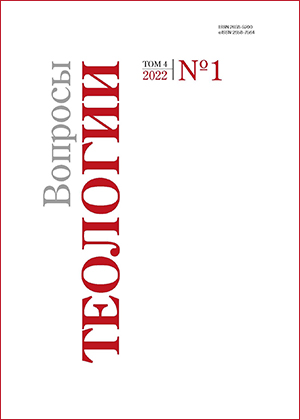L. N. Tolstoy and Islam: Rethinking Muslims’ place in Russian cultural canon
DOI:
https://doi.org/10.21638/spbu28.2022.105Abstract
This article distinguishes the main ways of thematization of Islam in Russian intellectual culture: Islam as a civilizational opponent, as inferior to Christianity as a revealed religion, as a potential Christianity, and others. These opinions differ from the Tolstoy’s as he understood Islam as a full-fledged tradition that has some religious truths common to Christianity and that distorts them throughout the course of history in its own way. The special relevance of Tolstoy’s conception of spiritual and ethical nature of religion for rethinking Muslims’ places in the Russian “cultural canon” is noted. The author observes the particular internal similarities between Tolstoy’s philosophy and Islam that make them close. Both the outright “Islamization” of Tolstoy’s teachings and the attempts to separate his ideas from Islamic context are criticized. The “cognation” between some of Tolstoy’s central ideas, stemming from his contemplation of Christian legacy, and the ideas embedded in Islamic tradition may facilitate more successful “convergence” of Muslim identity and Russian identity (“prototypically” Christian). In conclusion, the author justifies the necessity of appealing to the thought of “non-Islamic” thinkers in Russian culture for overcoming of the stereotypical images of Muslims in Russian “cultural canon” to be effective.
Keywords:
Islam, Muslim identity, Russian philosophy, Russian Muslims, hegemony, religious renewal
Downloads
References
References
Downloads
Published
Issue
Section
License
Articles of "Issues of Theology" are open access distributed under the terms of the License Agreement with Saint Petersburg State University, which permits to the authors unrestricted distribution and self-archiving free of charge.




